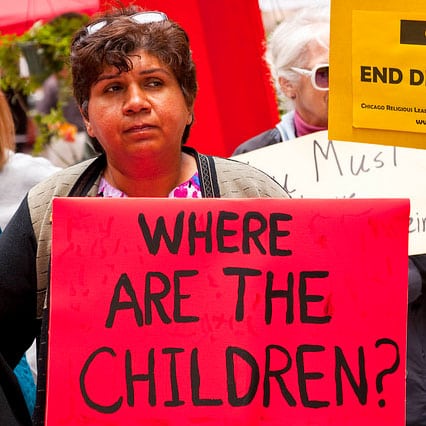
June 28, 2018; Washington Post
A week ago, NPQ covered the story of a Texas-based nonprofit, the Refugee and Immigrant Center for Education and Legal Services (RAICES), which has now received $20 million in donations from a public reacting to the Trump administration’s policy separating children from their parents when families enter the country seeking asylum. It was not at that time exactly clear how all of that money would be spent, but the organization has now announced it has established a database of separated children and a hotline to help reunite families separated under the Trump administration’s “zero tolerance” policy. Even now, after Trump has rescinded his policy, as many as 2,500 children remain in detention.
The volunteer-staffed National Families Together Hotline will work to find the parents of detained children, almost as a private investigator would, and then staff will help connect parents to free legal services.
“Reuniting the families separated by the current administration’s ‘zero tolerance policy’ has become essentially a game of hide and seek,” said Jonathan Ryan, executive director of RAICES.
Sign up for our free newsletters
Subscribe to NPQ's newsletters to have our top stories delivered directly to your inbox.
By signing up, you agree to our privacy policy and terms of use, and to receive messages from NPQ and our partners.
In New York, the Vera Institute of Justice is also assisting with reunification from the other side, through helping detained parents find their children.
On June 26th, US District Judge Dana Sabraw issued an injunction requiring that the federal government reunify migrant families with their children within 30 days for children ages five and up and within 14 days in the cases of children younger than that. The judge charged the federal government with “reactive governance” within “a chaotic circumstance of the government’s own making.” Still, the Department of Homeland Security, which detains parents, and the Department of Health and Human Services, which attends to separated children, have not communicated how they will comply with the injunction.
According to the Washington Post, RAICES has documented 453 children who still do not know where their parents are. “The youngest is just two months old, and the average age is eight.” Meanwhile, some toddlers, report attorneys, are being ordered into court to advocate for themselves, and it is possible that some of the parents have already been deported.—Ruth McCambridge












